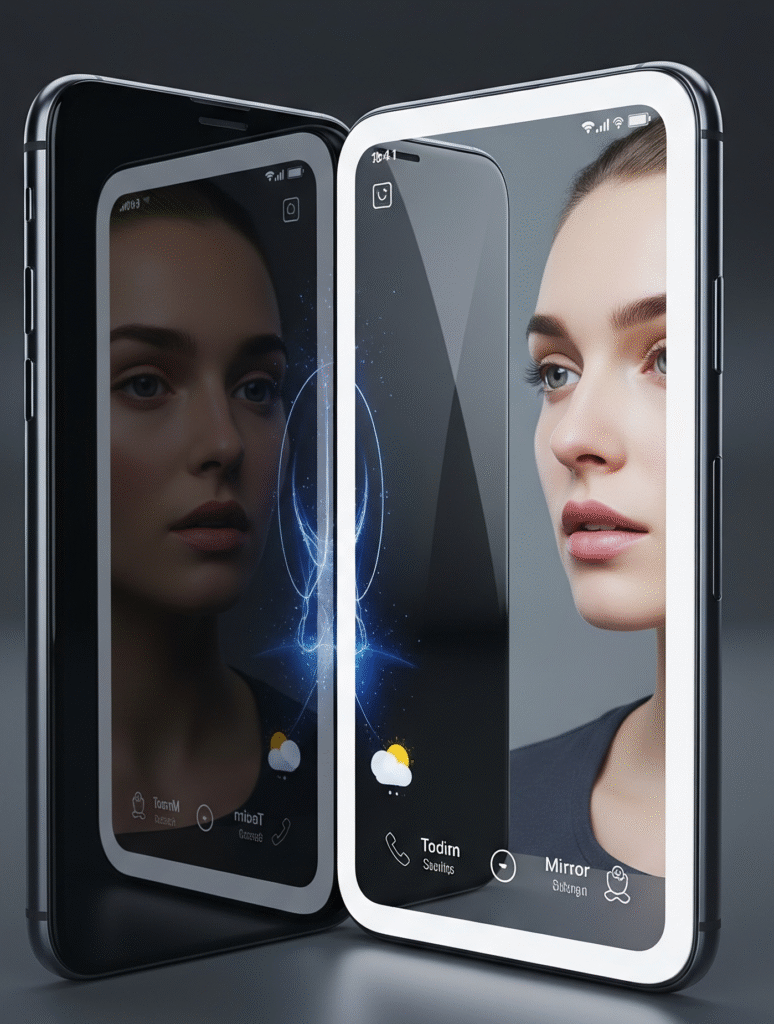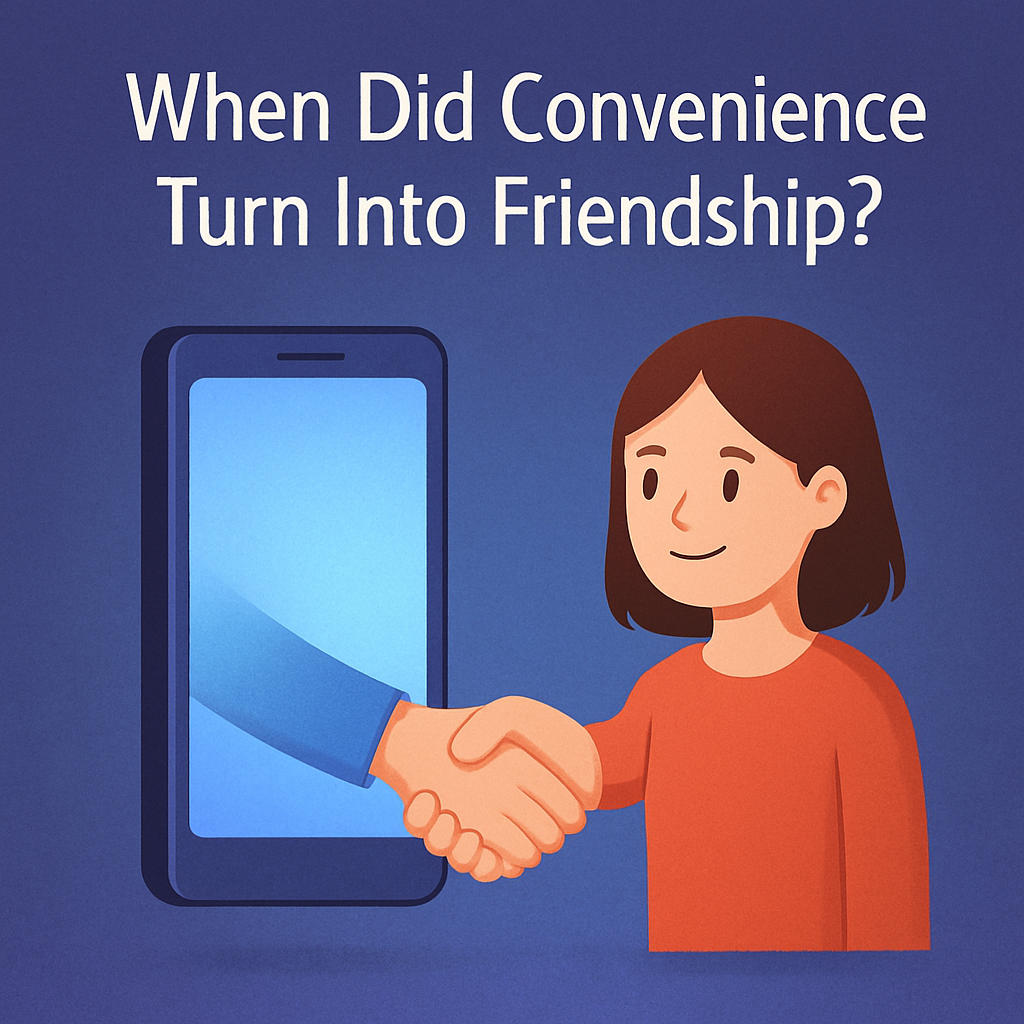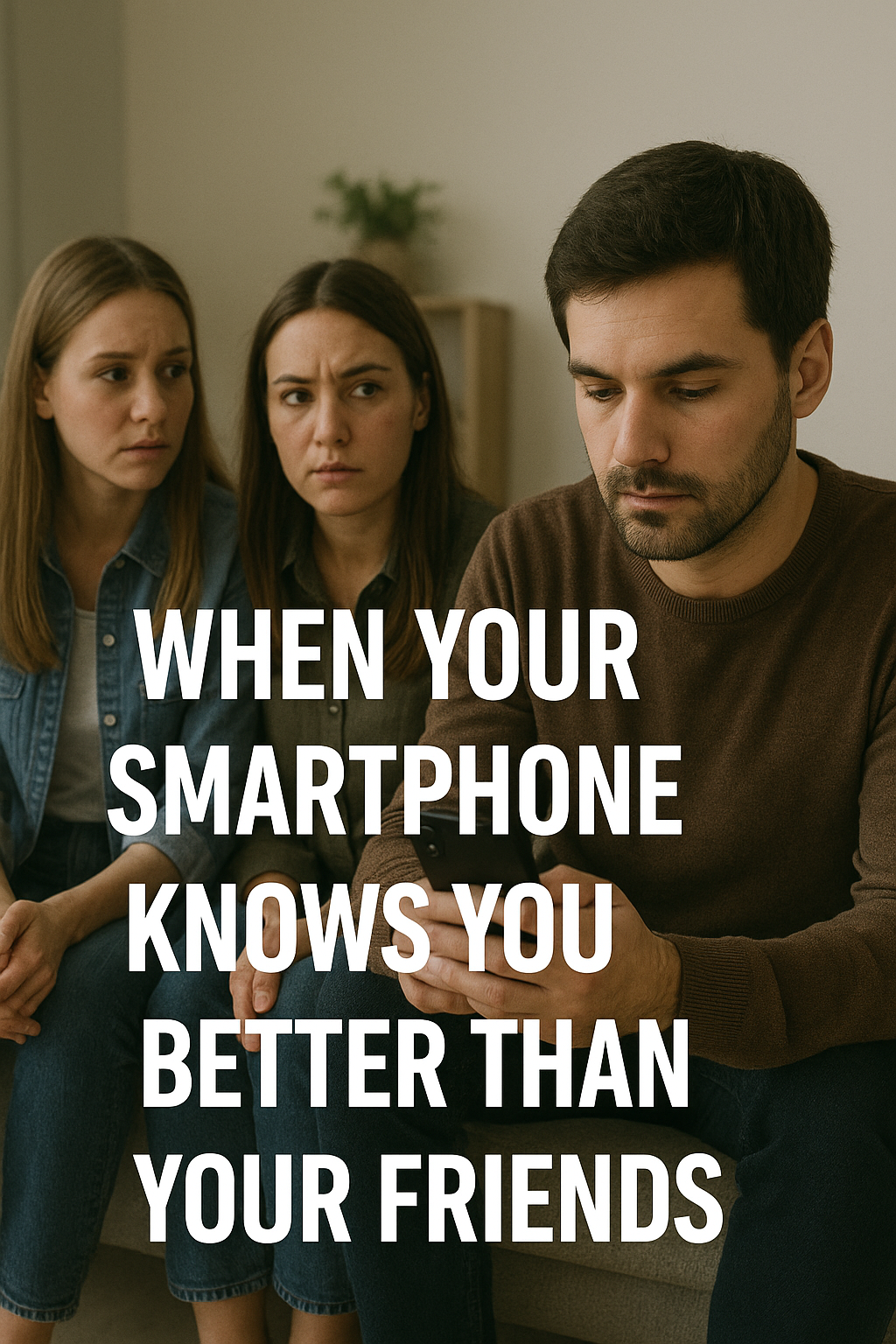When you have The Strange, Smart, and Slightly Scary Power of Your Pocket Companion
It’s morning. Your alarm rings you unlock your phone, Without asking, it recommends your favorite song, suggests what to eat, and even reminds you of a memory from years ago and weather app suggests a jacket, Spotify queues up your favorite morning playlist, and Instagram shows you reels about the exact mood you’re in. Coincidence? Not really It feels like your smartphone knows you inside out — maybe better than your closest friends
Table of Contents
Welcome to the era where your phone might just understand you better than your close friend
Smartphone or Smart Mirror?”
Your smartphone isn’t just a device. It’s reflects you
Every swipe, tap, like, and pause feeds a silent observer: your smartphone. Powered by machine learning and behavioral algorithms, your device constantly studies your habits to predict your next move.

The question is: how does it do that
- Every time you use your smartphone — whether you’re browsing, texting, ordering food, or tracking your steps — you’re feeding little bits of information. Your smartphone have a detailed picture of your behavior, preferences, routines, and even your emotional patterns.
- Tracking behavior: What you search, what you ignore, and what you tap apps monitor how long you spend on them
- Location services: Your device quietly locate your daily movements — from your morning coffee stop to your late-night scrolling.
- App integration: Tools like Google, Apple, and Meta sync your calendar, contacts, emails, and social media activity to create a unified profile.
- Machine learning: Algorithms analyze all this data to predict your next move -like suggesting a playlist or recommending a restaurant before dinner time.
- Even your emotional states through typing speed, voice tone, and facial recognition
- When you search for shoes on E-commerce and then see related ads on social media how it happen –read here
It does not “feel,” but it observes, remembers, and responds — almost like it’s watching the story of your life unfold, one notification at a time.
When Did Convenience Turn Into friendship?

Just like the phone fulfilled our needs, it also made the world around us according to us. And when did this need become a habit with time? We did not even realize when we made friends by fulfilling our needs with the phone. Time passed very quickly and now we have gone beyond this habit.
Can we live a second without a it?
Sometimes it feels as if the whole world has been put into the phone. Undoubtedly it is a very useful thing but losing our essence in it deprives us of the real world.
A digital friend… or something more?
No doubt phone make our live simpler and new advance functions like AI assistants Siri, Google Assistant, or ChatGPT becoming more conversational and emotionally tuned, it’s no longer strange to say “my phone gets me. We turn to it when we’re sad, anxious, bored, or even celebrating. i short we can say these assistant understand our feelings partly.
It listens. It learns. It remembers.
Over time, we form a one-sided emotional bond.
But What Are We Losing?
As our bond with it depends, we rarely pause to ask: What’s slipping away in the process?
- 1. Real Connection Are Fading: We avoiding face to face talks but fully engaged in online chats and making unknown friends and slowly drifting away from the ones already in our lives. We’re texting more and talking less conversations are shorter, slighter – often disturbed by a notification or the need to scroll. Sitting with friends, yet staring at screens.
- 2. Less Boredom, Fewer Breakthroughs: Its kill boredom instantly — but boredom once sparked creativity, self-reflection, even daydreaming. Now, every pauses becomes a chance to scroll, not to think.
- 3. Our Attention is break up: Notifications, endless feeds, multitasking — they chip away at focus. It’s harder to sit through a movie, a book, or a deep conversation without checking the screen.
- 4. Emotional Distance: The more we rely on digital tools for comfort, the more emotionally detached we become from real-life support systems — family, friends, even ourselves.
- 5. Losing the Joy of Being Present: We’re living life through a screen — recording moments instead of experiencing them. Photos, stories, likes… they become the goal, not the memory itself. Live example of this You’re standing in front of a mountain or at the beach during sunset. Instead of breathing it in, you’re watching it through your screen — recording it, editing it, sharing it.
You’re there, but not really there.
The Balance We Need
Technology is powerful. It helps, supports, entertains — and sometimes, even understands. But it’s up to us to decide how far we let it go
- 1. Set App Limits– Use tools like Screen Time (iOS) or Digital Wellbeing (Android) to cap usage on social media, entertainment, or news apps. 10 minutes of control is better than 2 hours of autopilot.
- 2. Schedule Phone-Free Time-Pick moments in the day — like meals, mornings, or evenings — to go completely offline. Let your mind and relationships breathe.
- 3. Replace Auto-Recommendations with Intentional Choices-Instead of tapping the next suggested video or song, ask: What do I actually want to see or listen to right now?Reclaim your attention — don’t let algorithms choose for you.
- 4. Start Journaling Your Mind, Not Just Your Feed-Use a journal (paper or digital) to reflect on your day, your feelings, and your goals. It helps shift focus inward, not outward
5.Try Digital Detox Habits–
- One day a week with no social media
- “No phone zones” like bedroom or dinner table
- Go analog: Read a book, take a walk, or just daydream
7. Conclusion
Your phone understands you quickly — it knows your habits, preferences, and patterns. But let’s not forget:
It doesn’t feel joy when you smile.
It doesn’t read your emotions — it reads your data.
While your device offers suggestions based on algorithms, your family and friends offer advice from the heart — often by just looking at your face. A device can support you, but it can never replace human connection.
Let’s remember to treat our phones as tools, not emotional replacements.
Stay connected online — but don’t disconnect from the real world.
Make space for real friendships, real conversations, and real feelings.


Leave a Reply to Zamin Cancel reply